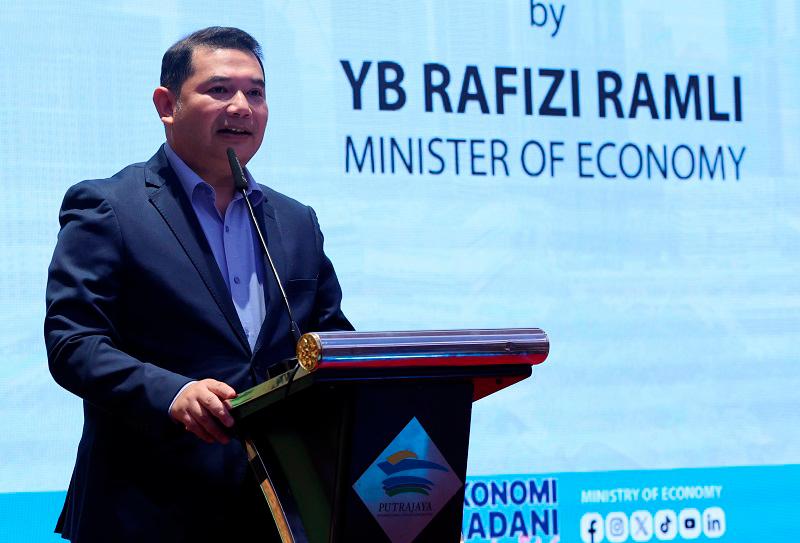PUTRAJAYA: The government will introduce the Government Efficiency Commitment Act to reduce bureaucracy and certain procedures in business affairs, said Economy Minister Rafizi Ramli.
He said the meeting of the National Economic Action Council (NEAC) this month agreed to introduce an Act that would give guidelines or parameters to the government to simplify the bureaucratic process.
He said the Government Efficiency Commitment Act is expected to be presented in Parliament at the end of this year.
“The government’s decision (through the NEAC) is a commitment to facilitate business, we will take steps through an Act.
“This Act will provide guidelines or parameters to the government regarding our commitment to simplify bureaucratic red tape,“ he told reporters after launching the 2024 OECD Economic Surveys Malaysia here today.
Rafizi said that among the factors that the Act was introduced was that the regulations, especially those involving business in Malaysia, were long and complicated.
“So when we compare, for example, the time it takes to establish a company in Malaysia (is longer) compared to neighbouring countries that are seen as more agile.
“Similarly, there are many procedures that need to be followed to register a business,“ he said.
He said the Government Efficiency Commitment Act is parallel to an act that was introduced last year, the Fiscal Responsibility Act.
“If this Fiscal Responsibility Act sets, for example, the boundary lines in terms of fiscal deficit, and that federal government development expenditure to be at least three per cent of GDP.
“In terms of the Government Efficiency Commitment Act, the concept is the same, which is to lay down the lines of efficiency that must be followed by the government and need to be discussed in Parliament,“ he said.
Regarding the OECD Economic Surveys Malaysia, he said the economic reports produced by the OECD enable the Economy Ministry and other agencies to benchmark in certain sectors.
“During the initial discussion with the OECD (Organisation for Economic Co-operation and Development) last year, the one sector the Economy Ministry requested to be studied in depth, including by comparing policies and practices in other countries, is that of micro, small and medium enterprises (MSMEs).
“These findings will, of course, be used for us to formulate the 13th Malaysia Plan and also, for us to formulate specific policies and programmes in the sector involving MSMEs,“ he said.
Asked about the proposal to introduce the Goods and Services Tax, Rafizi said the current government policy has given confidence to the market and investors that the administration is serious about continuing to focus on fiscal strengthening.
“Any other actions or policies are certainly considered by the government from time to time,“ he said.









